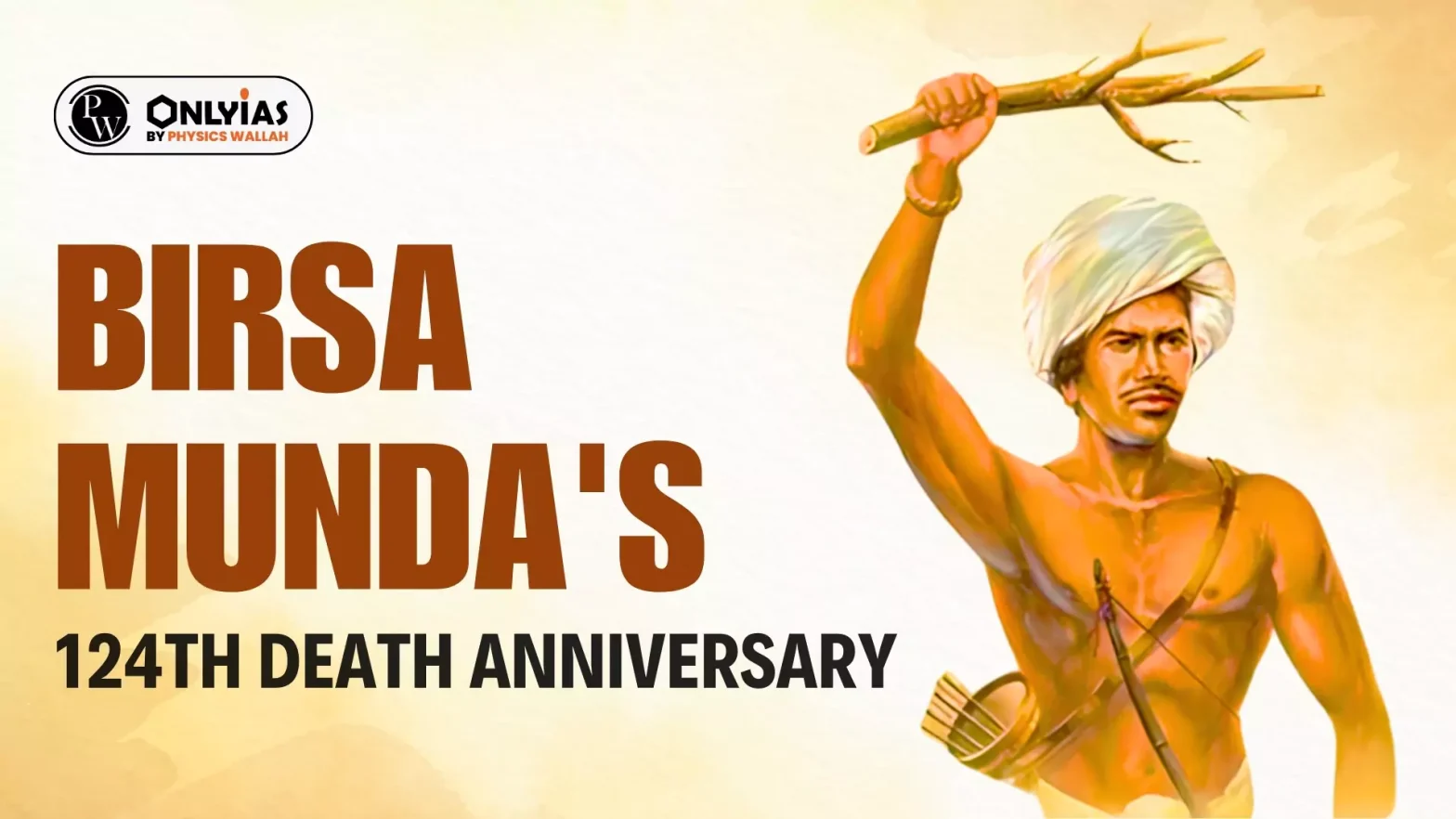Jharkhand Chief Minister paid his tributes marking the 124th death anniversary of revolutionary tribal leader Birsa Munda.
| Relevancy for Prelims: Birsa Munda, Mundaism, Ulgulan or Great Tumult, Tribal Movements, and Tribal Revolts, etc.
Relevancy for Mains: About Birsa Munda, Ulgulan or Great Tumult Rebellion, etc. |
Birsa Munda Early Life and Background
- Birsa Munda: Birsa Munda was a tribal leader and religious reformer who belonged to the Munda tribe. He was born on November 15, 1875, at a time when his community was witnessing major changes.
- He was born in 1875 in the village of Ulihatu, in the Mundari princely state of Khunti, and grew up in a time when the Munda people were facing increasing exploitation and displacement by British colonial rule and Hindu landlords.
- Mundas: A tribe of nomadic-hunters-turned-farmers who lived in the Chotanagpur region in today’s Jharkhand, had to bear the brunt of a series of adverse policies and events.
- Khuntkatti: Before colonial rule, the prevalent system of land ownership here was known as “khuntkatti”. It was based on the principle of customary rights, without the involvement of landlords.
Enroll now for UPSC Online Course
Religious Reform Movement
- In the late 19th century, Birsa Munda founded a new religious movement known as “Mundaism” or “Kisangism.”
- This movement aimed to revive traditional Munda customs and beliefs and unite the Munda people against their oppressors.
- Birsa’s teachings emphasized the importance of self-reliance, social justice, and resistance against oppression.
- He preached that the Munda people should return to their traditional values and reject the influence of both British colonialism and Hindu landlords.
Birsa Munda (1875-1900)
- He was an Indian tribal freedom fighter and folk hero who belonged to the Munda tribe. He led a millenarian movement that sought to reform tribal society and fight against British colonial rule in the late 19th century.
- Birsa’s movement, the Ulgulan or Great Tumult, arose in the Chotanagpur region of Bengal Presidency (now Jharkhand). It mobilized Munda and Oraon tribals against forced labor, missionary activities, and colonial land appropriation.
- The British arrested Birsa in 1895 and he died in prison in 1900. His death sparked violent protests and he became a martyr for tribal activism against the British.
- Birsa Munda is revered as Bhagwan or God in the folk traditions of many central Indian tribal communities. His birth anniversary on 15th November is celebrated as Birsa Munda Jayanti in Jharkhand and other states.
Check Out UPSC Modules From PW Store
Conclusion
The British colonial policies of restricting traditional tribal rights over forest lands were a major cause of tribal unrest. Birsa Munda’s movement exemplified the social and economic grievances behind tribal uprisings against the British.
![]() 10 Jun 2024
10 Jun 2024

